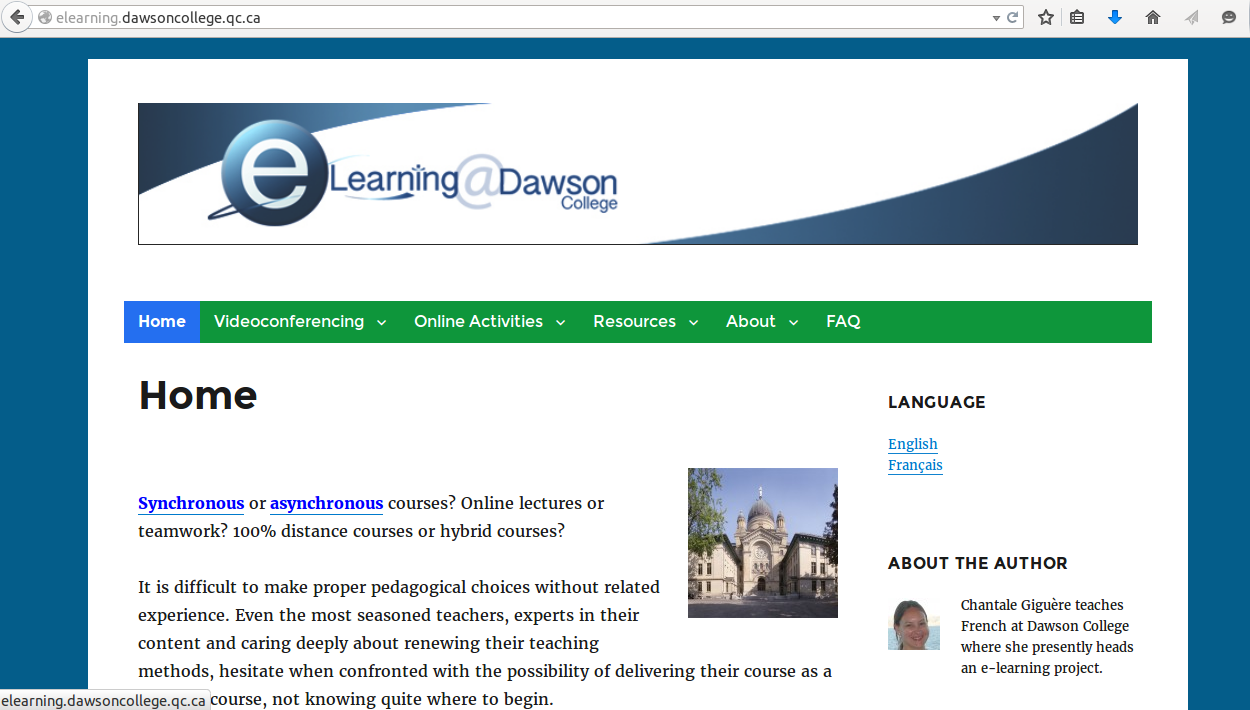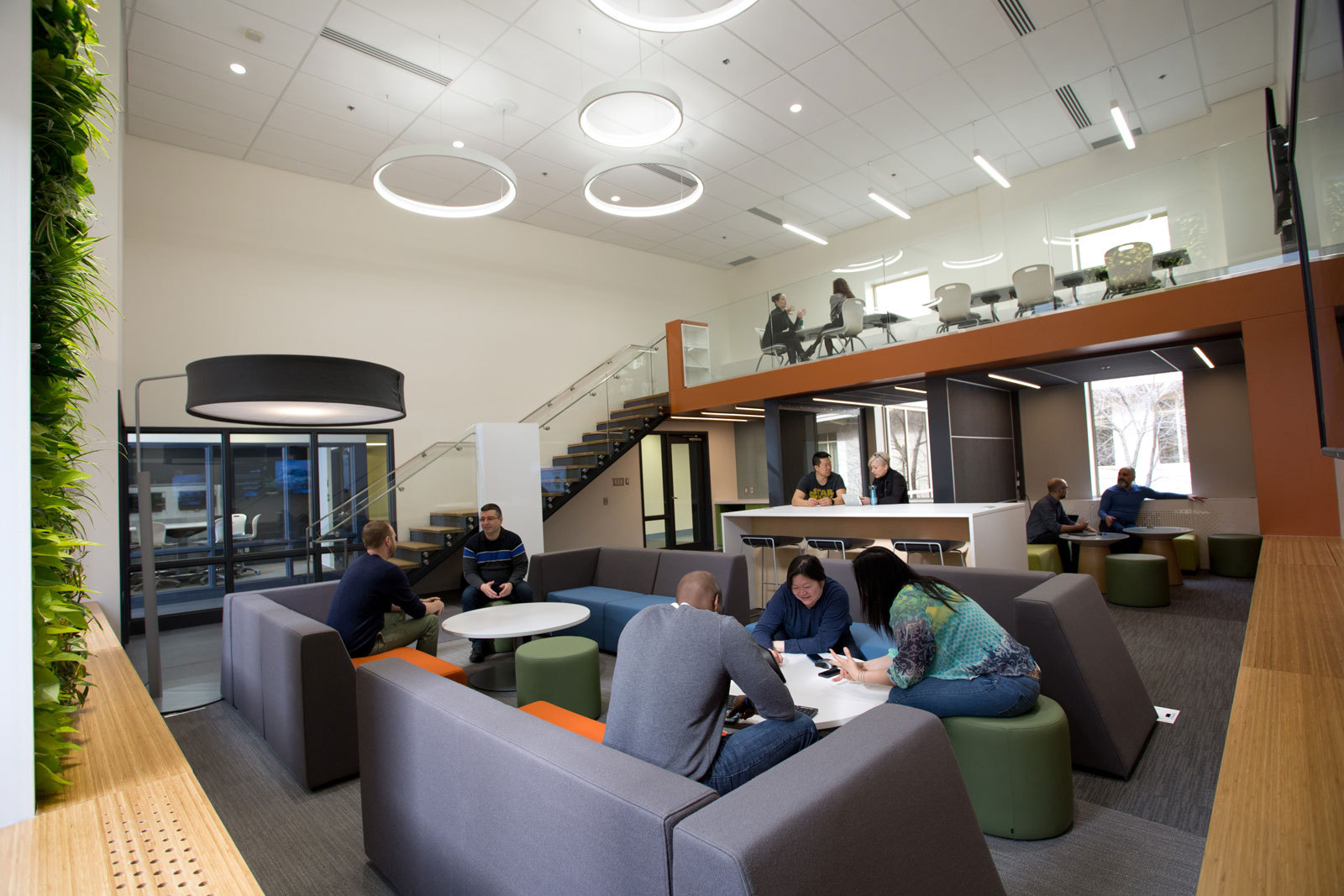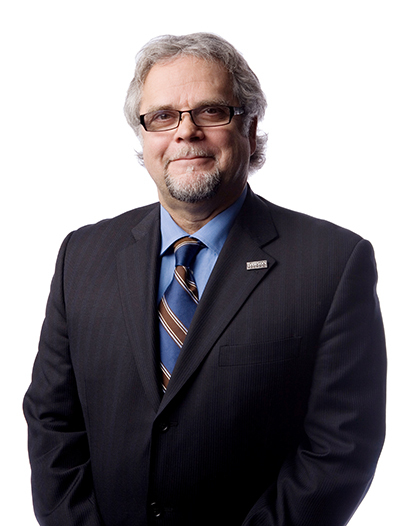Ed Tech Was On the Menu at Dawson’s Fall 2016 Ped Day
Once again, the Office of Academic Development at Dawson College assembled an eclectic and forward-looking range of speakers, presenters and topics for its Fall 2016 Ped Day, held on Friday, October 14th. For practitioners and enthusiasts of educational technology alike, there was no shortage of inspirational presentations from faculty and guest speakers to encourage us to integrate new approaches into our teaching practices.
The day began in Conrod’s lounge, where student volunteers from Dawson’s Blue Ring Society greeted staff and guest presenters. Attendees were treated to coffee and a light breakfast which provided fuel for our bodies and primed our minds for all the interesting professional development activities we were about to absorb in the morning.

Diversity in Our Classrooms and Beyond
Dawson’s Dean of Academic Development, Barbara Freedman formally kicked off the day in the college’s Hall of Honour/Multipurpose Room (5B.16) , thanking all faculty, staff and guests for their attendance of the event. She then handed the stage over to the Keynote Speaker, Dr. Alan Sears from the University of New Brunswick who provided a thoughtful talk on citizenship and diversity as it relates to teaching and learning. After this presentation on the diversity of people, it was time to begin the morning workshops which were both diverse and rich in their own right.
Morning Sessions
E-learning and On-line Tools
Lysanne Audy, Chantale Giguère, Anne-Laure Teichet, Julie Wong and invited guest Ryan W. Moon hosted mini-sessions that revolved around the theme of teaching on-line at Dawson. Lysanne Audy presented her preferred tool for providing virtual French as a Second Language classes (VIA). Julie Wong from the Business department encouraged faculty to take a few steps into the on-line space by showing how she uses Microsoft Office 365, PowerPoint Mix and some custom evaluations. Chantale Giguère, a French as a Second Language Teacher, and Ryan W. Moon from Cégep à distance conducted a mini-consultation of workshop attendees as a precursor to organizing an E-Learning Community of Practice at Dawson. Anne-Laure Teichet, also a French as a Second Language teacher, took a decidedly different approach by leading discussions about whether students will be well-served by having even more screen time, which gave way to thoughtful conversations among faculty.
Marc Belanger of Vanier College provided a presentation on the WeBWork on-line homework system which is used by multiple teachers at his college. Marc, an award-winning teacher has been using the system in his own Quantitative Methods courses at Vanier for some time now, and presented some of his research about the effectiveness of using the tool that he conducted with Performa. Profweb has published some Real Life Stories in the past about WeBWork that we invite you to read for more information about the tool!
Dawson’s Program Coordinator of Developmental Science and Exploration Science, Sameer Bhatnagar treated his workshop attendees to a crash course on the basics of the OpenEdx Learning Management System (LMS), which is now available for use at Dawson College. This is the freely downloadable version of the edX course platform that was initiated by Harvard and MIT. The session participants had the chance to build a course with a learning sequence of four different problem types as well as receiving a preview at some of the more advanced features of the LMS.

The e-Learning at Dawson Website.
Research and Universal Design
In 2015, Profweb published a Real Life Story about a research project that was being conducted by Laura King (Cégep André-Laurendeau) and a team of researchers. The study included a student survey related to their impressions on teachers’ use of technology in the classroom. As part of the survey, students were asked to nominate teachers that they felt were exemplary in their use of Ed Tech. For Dawson’s Ped Day, Laura was joined by Alice Havel and Mary Jorgensen from the Adaptech Research Network to report on their interviews with the 62 teachers that were nominated, and shared an overview of the nominated teachers’ perspectives and approaches.
And speaking of the Adaptech Research Network… members Evelyne Marcil & Catherine Fichten were on hand to present another session entitled Doing it Right: PowerPoints From a Universal Design Perspective. They provided attendees with simple guidelines to help all teachers designing presentations to ensure that all students may benefit from these in-class presentations regardless of their learner type or potential learning disabilities.
Flipped Classrooms, Project Management and On-line Collaboration
SALTISE community members and Dawson faculty Adamo Petosa and Elizabeth Charles led a workshop to showcase the use of two digital learning tools Visual Classrooms and SMART amp in order to demonstrate how they can be used to allow students to “share, analyze, peer-review and collaboratively discuss content using personal computing devices.” Attendees benefitted not only from the stories of teachers who are currently using these tools, but also had a chance to try them out for themselves.
For those teachers who have longed to learn to program, or simply manage their collaborative projects a bit more efficiently, Yann Lamontagne and Sylvain Muise provided an introduction to the GitHub on-line platform which allows multiple users to collaborate simultaneously on a single project. Their session explored how the tool could be used to create just about anything, including course outlines and material, textbooks, even if it was originally intended for managing software projects! Yann Lamontagne continued to build upon this session in the afternoon by presenting the use of GitHub (using LaTeX) to manage the creation of a Linear Algebra textbook.
To round out the selection of offerings in the morning, Dawson’s IT-Representative Rafael Scapin offered a hands-on introductory workshop that provided an overview of some of the exciting features of Google Tools and Microsoft’s Office 365, and how they can be integrated into teaching. True to form, Rafael has already posted his presentation on slideshare.net!
Intermission
Although there wasn’t anything particularly technological about the fine lunch that Dawson served, we would estimate that around 500 faculty, staff members and guest presenters sat together, row on row, to exchange about what they had learned in the morning. At our table, there was a debriefing on Dawson’s upcoming E-learning community of practice, and Rafael Scapin stopped by to tell us about his plans to continue to provide more in-depth individual presentations on the specific tools within Google Tools and Office 365 to faculty over the next few months.

Many workshops took place in Dawson’s project room, the Co-Lab (Credit: Dawson College)
Afternoon Sessions
With a bit more food and, perhaps even more importantly, coffee in our systems, it was time to move into the afternoon sessions.
More UDL, SMART and Serious Games
Laure Galipeau, Effie Konstantinopoulos and Catherine Soleil presented on Universal Design for Learning and made a call to attendees to join Dawson’s UDL community of practice, whose stated goal is “to make teaching practices explicit, to help faculty work collaboratively in democratic and reflective ways and to establish sustained professional development based on a spirit of inquiry.” A discussion of assistive technologies amongst the attendees of the workshop was almost inevitable, as members of IT Partner organizations and Dawson’s own Adaptech Research Network were in attendance!
Dawson Physics teacher, SALTISE community member, and past Profweb contributorChris Whittaker presented a session on the use of SMART Boards for beginners that took participants from turning on the system to using all the basic features offered by this tool for teaching. He rounded out the presentation with a discussion of best practices to maximize student learning.
Avery Rueb from Vanier College was on hand to present a bilingual talk on Serious Games. His talk covered the history of video games and their transformation into serious games that are now being used in the classroom. Avery has been featured in Profweb, both in a Real Life Story and an article on a Serious Games conference he organized at Vanier College. The session provided a hands-on component, as attendees were invited to play a variety of serious games that are currently on the market.
Free and Open Source Software and Information Integrity
Patricia Campbell and Maja Frydrychowicz presented a talk on the Linux free and open source operating system for Teachers and Researchers. Attendees had the chance to try out Ubuntu Linux and get acquainted with the desktop environment and learned a few command line options. The Raspberry Pi single board computer also made a cameo appearance in the session. The presenters highlighted how teachers and researchers can unlock some powerful computing potential with just a few simple commands. The presenters also provided a number of useful links for the attendees to learn about programming and to experiment with Linux, namely by downloading free virtual machine software (VirtualBox from Oracle) and a Linux image to experiment which allows you to install a virtual copy of Linux on a PC or Mac without any danger to the existing hard drive and operating system.
From the classroom to computing in general, a company named Precicom provided a presentation on information security, including the steps that colleges and individuals can take to protect themselves from fraudsters. Given the rise in recent cases of spam, phishing and ransomware attacks affecting information systems in the public sector, this presentation was as timely as it was insightful.
From security of information to the integrity of information, plagiarism is still as much of an issue today as it has been over the past few years. Fortunately, Dawson Humanities teacher Eliza Wood provided a session on using the tool Turnitin.com. Attendees learned that the tool is not only useful for detecting plagiarism, but it can also improve the quality of feedback and reduce grading time.
All Good Things…
The end of Dawson’s Ped Day was capped off by a wine and cheese event which provided attendees a final chance to exchange with their colleagues in a relaxed setting. Dawson’s Director General Richard Filion addressed the faculty and staff, thanking them for the significant attendance of the Ped Day. The wine and cheese was also an opportunity for Mr. Filion to present four teachers with a Director General’s Award for Excellence in Teaching.

Dawson College’s Director General, Richard Filion (Credit: Dawson College)
Many thanks and congratulations to the team at Dawson’s Office of Academic Development for another outstanding event!

